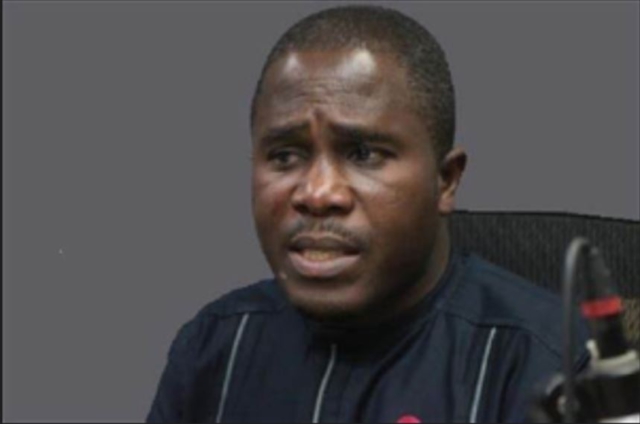The Institute of Energy Security (IES) has described as scandalous a release from the Electricity Company of Ghana (ECG) stating that the nation has a stable national power supply despite the ongoing power crisis.
The IES said the statement is misleading and contradicts earlier statements put out by the ECG.
“The IES is scandalised by this misleading statement, and the inconsistencies in ECG's public releases relative to the recent power outages being recorded across the country. In the recent statement, the ECG sought to equate "stable national power supply" to "stable national grid," both of which are non-existent in our present power sub-sector”, a statement signed by the Executive Director of IES, Nana Amoasi VII said.
The statement added that the IES is appalled by the extent to which the ECG is permitting the powers that be to frustrate its eligible business, embarrassing itself in the eye of the public.
“These public relation (PR) gimmicks by the ECG are unwarranted, disgusting, and diversionary; capable of denting the reputation and credibility of the institution”.
“In any case, how can we have a stable national power supply when since the start of the year, the ECG barely receives from GRIDCo 85% of power required to fully meet the demand of its customers. Again, one wonders the capacity of the ECG to confidently suggest that Ghana has a stable national grid”, the statement said.
According to the IES, the current situation demands that the system operator, the Ghana Grid Company Limited (GRIDCo) speak to the issues.
“Unfortunately, GRIDCo has gone mute, an attitude uncharacteristic of the entity”.
Below are the demands of the IES
1. The Ghana Grid Company Limited (GRIDCo) must break its silence on happenings in the power sector and be willing to indicate to the Electricity Company of Ghana (ECG) the quantum of power that could be made available to the ECG within a set time frame. Such an information is vital for the ECG to plan its load response with a timetable.
2. The ECG must concern itself with its load management based on the quantum of power made available by GRIDCo, as well as its effective mobilisation of revenue; necessary to prove full cost recovery.
3. The Public Utility and Regulatory Commission (PURC) must look beyond the ECG to audit the upstream segment of the power sub-sector, particularly the GRIDCo, and export sales by the Volta River Authority (VRA).
4. The Minister of Energy, and by extension, the government must allow the ECG to freely deliver its mandate without the usual political interference. The best intervention Ghanaians can expect from government at this critical moment is to cause the ECG and GRIDCo to cooperate so a load-shedding timetable can be issued as expected by Ghanaians.
Latest Stories
-
Ghana and Seychelles strengthen bilateral ties with focus on key sectors
2 mins -
National Elections Security Taskforce meets political party heads ahead of December elections
5 mins -
Samsung’s AI-powered innovations honored by Consumer Technology Association
25 mins -
Fugitive Zambian MP arrested in Zimbabwe – minister
43 mins -
Town council in Canada at standstill over refusal to take King’s oath
54 mins -
Trump picks Pam Bondi as attorney general after Matt Gaetz withdraws
1 hour -
Providing quality seeds to farmers is first step towards achieving food security in Ghana
1 hour -
Thousands of PayPal customers report brief outage
1 hour -
Gary Gensler to leave role as SEC chairman
2 hours -
Contraceptive pills recalled in South Africa after mix-up
2 hours -
Patient sues Algerian author over claims he used her in novel
2 hours -
Kenya’s president cancels major deals with Adani Group
2 hours -
COP29: Africa urged to invest in youth to lead fight against climate change
2 hours -
How Kenya’s evangelical president has fallen out with churches
3 hours -
‘Restoring forests or ravaging Ghana’s green heritage?’ – Coalition questions Akufo-Addo’s COP 29 claims
3 hours

